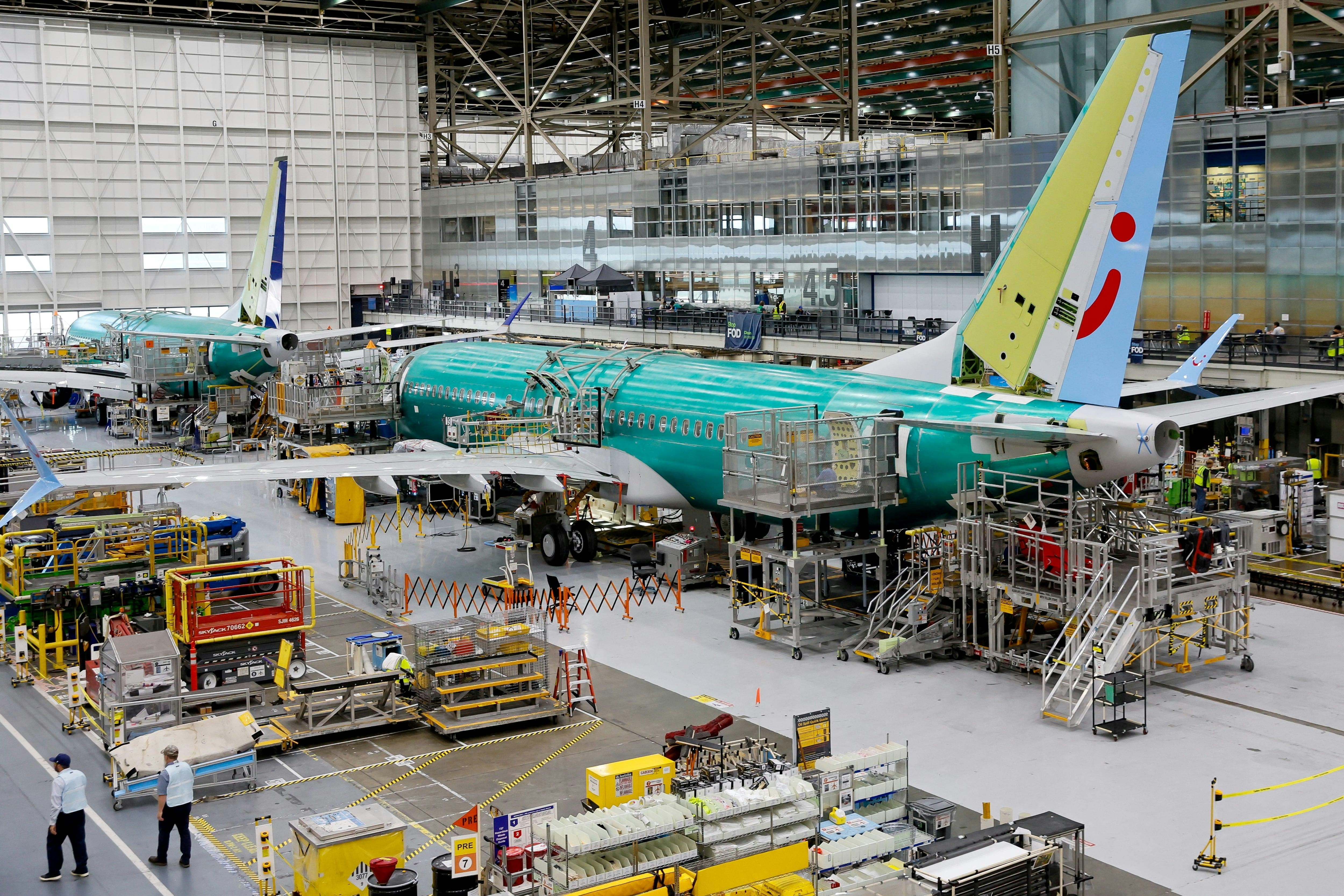AeroGenie — Uw intelligente copiloot.
Trending
Categories
Macquarie AirFinance Orders 30 Boeing 737 MAX Aircraft

Macquarie AirFinance Expands Boeing 737 MAX Order Amid Industry Transformation
Macquarie AirFinance has announced a significant order for 30 Boeing 737-8 aircraft, marking its second direct purchase from Boeing and increasing its total 737 MAX order book to 70 jets. The deliveries are scheduled to extend through 2032, enabling the lessor to support airline partners in modernizing their fleets with more fuel-efficient and technologically advanced aircraft.
Strategic Investment in Fuel Efficiency and Sustainability
This acquisition comes at a time when airlines globally are under increasing pressure to reduce carbon emissions and enhance operational efficiency. The Boeing 737 MAX series, featuring advanced engines and cutting-edge technology, offers approximately a 20% reduction in fuel consumption and carbon emissions compared to previous models. Eamonn Bane, CEO of Macquarie AirFinance, highlighted the aircraft’s advantages, stating, “The Boeing 737 MAX offers exceptional fuel efficiency, reliability, and passenger comfort, making it an ideal choice for our airline customers worldwide. By expanding our fleet with these state-of-the-art aircraft, we are reinforcing our commitment to providing sustainable and cost-effective solutions to our partners, while supporting the future of global aviation.”
Navigating Regulatory and Market Challenges
Despite the positive outlook, the order arrives amid ongoing regulatory scrutiny of the 737 MAX program. The U.S. Federal Aviation Administration (FAA) continues to conduct scenario-based planning before potentially lifting the current production cap on the aircraft, which could introduce further regulatory complexities for Boeing and its customers. Market reactions to the order have been mixed; some investors interpret Macquarie AirFinance’s commitment as a strong endorsement of Boeing’s recovery prospects, particularly as the manufacturer pursues a substantial 500-aircraft deal with China.
The competitive environment within the aviation industry is also evolving rapidly. Lufthansa Technik’s recent extension of its drag-reduction film coating technology to Airbus aircraft underscores the sector’s broader efforts to improve fuel efficiency and sustainability. Concurrently, shifting airline preferences are evident, with Copa Airlines reportedly reconsidering some orders for the larger MAX 10 variant in favor of the smaller MAX 8 and MAX 9 models, reflecting changing operational requirements and market dynamics.
Brad McMullen, Boeing’s senior vice president of Commercial Sales and Marketing, welcomed the expanded order from Macquarie AirFinance, emphasizing the importance of lessors in the aviation ecosystem. “Macquarie AirFinance’s further commitment to the 737 MAX is a testament to the value of this airplane among the leasing community and our airline customers. Lessors remain a crucial partner to Boeing and global carriers in providing financial solutions that expand single-aisle fleets,” he said.
As Macquarie AirFinance continues to grow its 737 MAX portfolio, the company is strategically positioning itself to meet the rising demand for next-generation, fuel-efficient aircraft. This expansion occurs against a backdrop of regulatory developments, shifting airline strategies, and intensifying competition within the global aviation market.

Capital A Completes Sale of Aviation Business to AirAsia X

Four Gateway Towns to Lake Clark National Park

PRM Assist Secures €500,000 in Funding

Should Travelers Pay More for Human Support When Plans Go Wrong?

InterGlobe Aviation Shares Rise 4.3% Following January Portfolio Rebalancing

Key Market Segments Shaping Airline Route Profitability Software

Locatory.com Gains Traction Among Aviation MROs and Suppliers

JetBlue Flight Makes Emergency Landing Following Engine Failure

58 Pilots Graduate from Ethiopian University

The Engine Behind Boeing’s Latest Widebody Aircraft
